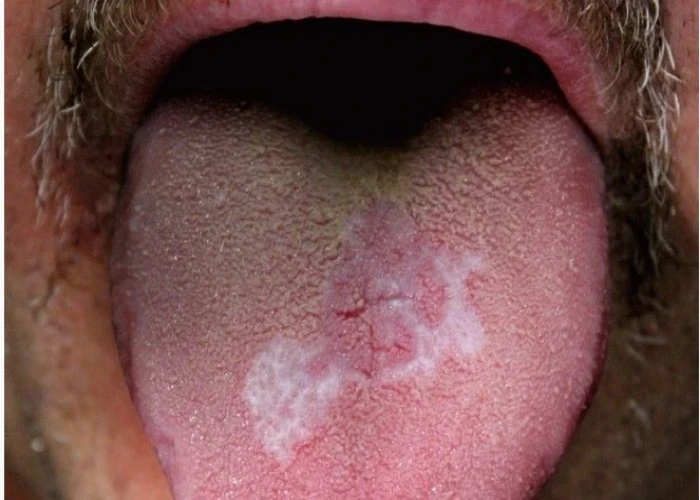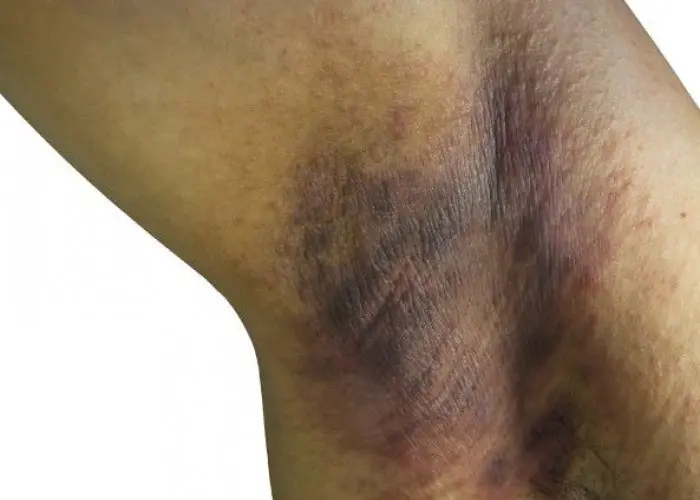 Welcome
Welcome
“May all be happy, may all be healed, may all be at peace and may no one ever suffer."
Heart murmurs

A heart murmur is an abnormal sound heard during a heartbeat. It is caused by turbulent blood flow within the heart, and it can be heard with a stethoscope during a physical examination.
Murmurs can be benign or abnormal, and they can be caused by a variety of factors, including congenital heart defects, valve problems, and conditions that affect blood flow in the heart or blood vessels.
Benign heart murmurs are common and do not indicate a serious heart problem. They may be caused by a temporary increase in blood flow, such as during exercise or pregnancy, or by structural differences in the heart or blood vessels that are present from birth.
Abnormal heart murmurs may be caused by a heart valve problem, such as a leaky or narrowed valve, or by other heart conditions, such as an infection of the heart lining or a congenital heart defect. Abnormal murmurs may require further testing or treatment, depending on the underlying cause.
Doctors typically use an echocardiogram or other imaging tests to diagnose and evaluate the cause of a heart murmur. Treatment may involve medication or surgery, depending on the specific condition. In some cases, a heart murmur may require no treatment and simply be monitored over time to ensure it does not worsen.
Research Papers
Disease Signs and Symptoms
- Face is blue
- Fainting (syncope)
- Dizziness (vertigo)
- Chest pain
- Heavy sweating (diaphoresis)
- Enlarged neck veins
- Enlarged liver and spleen
- Chronic cough
- Shortness of breath (dyspnea)
- Swollen body
- Rapid weight gain
- Irregular heart sound (heart murmur)
Disease Causes
Heart murmurs
A heart murmur may happen:
- When the heart is filling with blood (diastolic murmur)
- When the heart is emptying (systolic murmur)
- Throughout the heartbeat (continuous murmur)
A heart murmur may be innocent or abnormal.
Innocent heart murmurs
A person with an innocent murmur has a normal heart. This type of heart murmur is common in newborns and children.
An innocent murmur can occur when blood flows more rapidly than normal through the heart. Conditions that may cause rapid blood flow through your heart, resulting in an innocent heart murmur, include:
- Physical activity or exercise
- Pregnancy
- Fever
- Not having enough healthy red blood cells to carry adequate oxygen to your body tissues (anemia)
- Too much thyroid hormone in your body (hyperthyroidism)
- Phases of rapid growth, such as adolescence
Innocent heart murmurs may disappear over time, or they may last your entire life without ever causing further health problems.
Abnormal heart murmurs
In adults, abnormal murmurs are most often due to acquired heart valve problems. In children, abnormal murmurs are usually caused by structural problems of the heart (congenital heart defects).
Common congenital defects that cause heart murmurs include:
- Holes in the heart. Known as septal defects, holes in the heart may or may not be serious, depending on the size of the hole and its location.
- Cardiac shunts. Cardiac shunts occur when there's an abnormal blood flow between the heart chambers or blood vessels, which may lead to a heart murmur.
- Heart valve problems present from birth. Examples include valves that don't allow enough blood through them (stenosis) or those that don't close properly and leak (regurgitation).
In older children and adults, causes of abnormal heart murmurs include infections and conditions that damage the structures of the heart. For example:
- Valve calcification. This hardening or thickening of valves, as in mitral stenosis or aortic valve stenosis, can occur as you age. Valves may become narrowed (stenotic), making it harder for blood to flow through your heart, resulting in murmurs.
- Endocarditis. This infection of the inner lining of your heart and valves typically occurs when bacteria or other germs from another part of your body, such as your mouth, spread through your bloodstream and get stuck in your heart.
- Left untreated, endocarditis can damage or destroy your heart valves. This condition usually occurs in people who already have heart valve problems.
- Rheumatic fever. Although now rare in the United States, rheumatic fever is a serious condition that can occur when you don't receive prompt or complete treatment for a strep throat infection. It can permanently affect the heart valves and interfere with normal blood flow through your heart.
Disease Prevents
Heart murmurs
While there's not much you can do to prevent a heart murmur, it is reassuring to know that heart murmurs are not a disease and are often harmless. For children, many murmurs go away on their own as children grow. For adults, murmurs may disappear as the underlying condition causing them improves.
Disease Treatments
An innocent heart murmur generally doesn't require treatment because the heart is normal. If an innocent murmur is caused by an illness, such as fever or an overactive thyroid (hyperthyroidism), the murmur will go away once that condition is treated.
An abnormal heart murmur is closely monitored by your doctor over time. Treatment depends on the heart condition causing the murmur and may include medications or surgery.
Medications
The medication your doctor prescribes depends on the specific heart problem you have. Some medications your doctor might give you include:
- Blood thinners (anticoagulants). This type of medicine prevents blood clots from forming in your heart and causing a stroke. Your doctor may prescribe traditional anticoagulants, such as aspirin, warfarin (Jantoven) or clopidogrel (Plavix). Newer blood thinners, called direct-acting oral anticoagulants (DOACs), also may be prescribed. Examples include apixaban (Eliquis), rivaroxaban (Xarelto), dabigatran (Pradaxa) and others.
- Water pills (diuretics). Diuretics remove excess fluid from your body, which can help treat other conditions that might worsen a heart murmur, such as high blood pressure.
- Angiotensin-converting enzyme (ACE) inhibitors. ACE inhibitors lower your blood pressure. High blood pressure can worsen underlying conditions that cause heart murmurs.
- Statins. Statins help lower your cholesterol. Having high cholesterol seems to worsen some heart valve problems, including some heart murmurs.
- Beta blockers. These drugs lower your heart rate and blood pressure. They're used for some types of heart valve problems.
Doctors used to recommend that most people with abnormal heart murmurs take antibiotics before visiting the dentist or having surgery to prevent bacteria from getting into the lining of the heart (infective endocarditis).
Doctors no longer recommend antibiotics before procedures, except for people who have an artificial heart valve, history of a heart valve infection or a congenital heart defect that increases the risk of infective endocarditis.
Surgery
Surgery may be needed to correct a damaged or leaky valve that causes a heart murmur. Depending on your heart condition, your doctor may recommend one of several heart valve treatment options.
Valve repair
To repair a valve, your doctor may recommend one of the following procedures:
- Balloon valvuloplasty. This procedure is performed to relieve a narrowed valve. During a balloon valvuloplasty, a small catheter containing an expandable balloon is threaded into your heart, placed into the valve and then expanded to help widen the narrowed valve.
- Annuloplasty. In this procedure, your surgeon tightens the tissue around the valve by implanting an artificial ring. This allows the leaflets to come together and close the abnormal opening through the valve.
- Repair of structural support. In this procedure, your surgeon replaces or shortens the cords that support the valves (chordae tendineae and papillary muscles) to repair the structural support. When the cords and muscles are the right length, the valve leaflet edges meet and eliminate the leak.
- Valve leaflet repair. In valve leaflet repair, your surgeon surgically separates, cuts or pleats a valve flap (leaflet).
Valve replacement
In many cases, the valve has to be replaced. Options include:
- Open-heart surgery. This is the main treatment for severe valve stenosis. Your surgeon removes the narrowed valve and replaces it with a mechanical valve or a tissue valve. Mechanical valves are made from metal. They are durable, but carry the risk of blood clots forming. Tissue valves may come from a pig, cow or human deceased donor. They often eventually need replacement.
- Ross procedure. This type of heart valve replacement uses your own pulmonary valve (autograft). It's not often used due to the availability of less complex, yet effective, options.
- Transcatheter aortic valve replacement (TAVR). This is a less invasive approach to replacing a heart valve. TAVR involves replacing the aortic valve with a prosthetic valve through an artery in your leg or in a small incision in your chest.
- In some cases, a valve can be inserted through a catheter into a tissue replacement valve that needs to be replaced (valve-in-valve procedure).
- TAVR is usually reserved for people with severe aortic valve stenosis who are at increased risk of complications from aortic valve surgery.
Disease Diagnoses
Disease Allopathic Generics
Disease Ayurvedic Generics
Disease Homeopathic Generics
Disease yoga
Heart murmurs and Learn More about Diseases

Male infertility

Oral lichen planus

Hidradenitis suppurativa

Alcohol use disorder

Thoracic outlet syndrome

Childhood apraxia of speech

Pubic lice (crabs)

Sun allergy
heart murmurs, হৃদয় বচসা
To be happy, beautiful, healthy, wealthy, hale and long-lived stay with DM3S.
